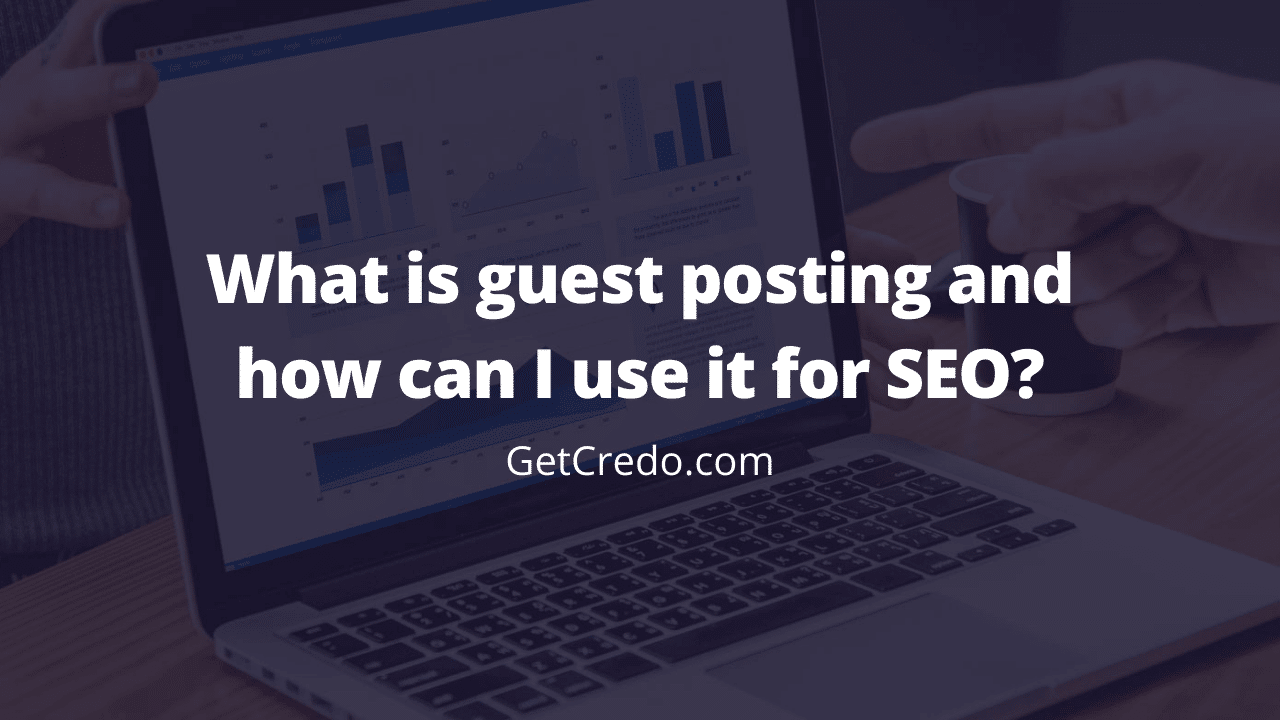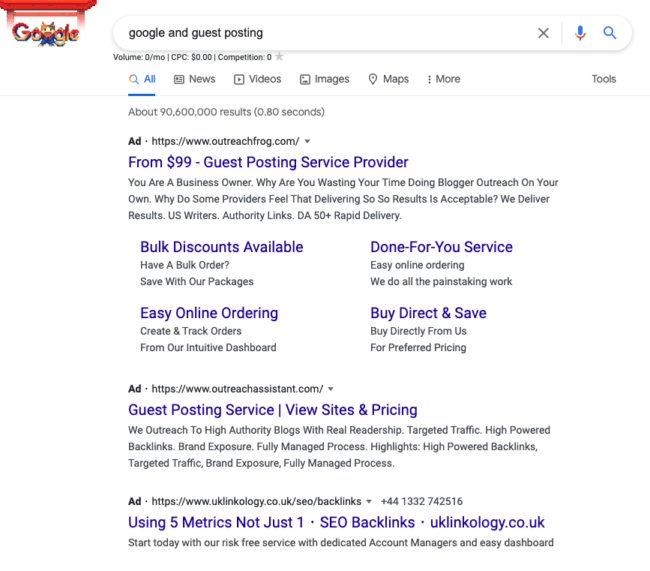Guest posting is the strategy in digital marketing of posting blog content on websites other than your own. For example, instead of writing about “XX SEO Tips for your own website”, you can pitch ideas to top websites and write your content on their site instead.
This provides you with a byline and a written post on another blog. Since so many websites outsource content, it’s a great way to establish mutually beneficial relationships and build brand awareness.
Popular blogs in tons of industries encourage writers to apply for guest blogging. Sites like Forbes, Inc. and more all have guest posting.

Guest posting history
Guest posting started as a way for two different websites to find mutually beneficial impacts of content sharing.
One site gives the other site content in exchange for exposure on their website, and vice versa.
This benefits both parties, as one would get free content to post and the other would get traffic and exposure.
But as backlinks became critical to SEO, guest posting took a dark turn into a spammy practice focused on acquiring easy links.
This lead Google to state, “Google does not discourage these types of articles [guest posts] in the cases when they inform users, educate another site’s audience or bring awareness to your cause or company. However, what does violate Google’s guidelines on link schemes is when the main intent is to build links in a large-scale way back to the author’s site.”
Now, guest posting is still widely used for a few other reasons.
Guest posting uses
Guest posting has a few main uses in this day and age.
Building brand awareness.
Guest posting is a fantastic way to build your company or personal brand. Writing on popular sites in your industry can showcase your expertise and thought leadership.
With bylines and author credit, readers who find your content appealing can visit your website and social profiles with ease, making building brand awareness easier than ever before.
When you put your best content on someone else’s site, it builds your name and drives referral traffic. And if you do it with SEO in mind, you can stack the search results with your content and thus get even more of the organic traffic share.
Plus, guest posting is free, and many sites have easy guides to follow to get your content featured.
Focus on creating the best content you can to feature, rather than on links (see: misunderstandings).
Invite users at the end of the post to visit your site for more information, too.
New audience targeting.
Beyond just building brand awareness, posting on new sites allows you to target brand new audiences who could be interested in your products and services.
Especially when landing large sites for guest posting, new audience targeting becomes easy.
You can effectively target traffic that comes from the guest post back to your site. Plus, you open the doors for new sales from users who may not have found you before.
Building industry relationships.
Everybody knows that industry relationships are key. Referrals are the golden standard for sales. A great way to produce better relationships is by guest posting consistently for sites and getting to know the site owners.
Guest posting risks and things to know
Guest posting also has some common misconceptions that can impact you negatively.
Guest posting used to be an amazing source of links.
You could exchange content with a popular, high Domain Authority website in exchange for a link. But Google quickly caught onto the act. In 2014, Google noted that guest blogging is good, but doing it for the purpose of links isn’t.
Google supports guest blogging, but they stated that websites once treated it as a coveted offer. That only select people would get guest posting gigs. Now, the strategy is so popular because it’s an easy link.
By looking at common anchor text, Google can tell if you are running spammy guest posting campaigns just for links.
When guest posting, don’t go into it with the mindset of grabbing hundreds of links.
Focus efforts on a small, targeted list of blogs where your target audience is likely to be. Target those lists in your next campaign to get your content on their blogs.
This helps you build excellent brand awareness and earn links that aren’t deemed as spam by Google.
Byline links aren’t as strong as contextual links.
Bylines are customary profile snapshots you see at the end of most articles online.
They showcase the author, their short biography, and a link back to their website or social media channels.
While these are great for driving some traffic and brand awareness for you and your company, they aren’t as powerful as contextual links within the body text.
Campaigning for bylines shouldn’t be your focus if strong backlinks are the goal.
Is guest posting still a viable link building strategy?
We often get asked if guest posting is still a viable link strategy, and to this point, we still say yes as long as it is part of a broader strategy.
Why do we say this?
First, Google has warned that guest posting can result in unnatural backlink profiles, so you should be careful when guest posting.
Second, there are many link strategies that are just as effective if not more effective than guest posting. Original data, guides, podcasts, and more are great ways to earn links back to your site. And guest posting can be a great auxiliary to build links back to this content as well, and thus spread your backlinks around in a natural way.
Third, guest posting has become commoditized. Just do a search for [guest posting] and you get a lot of ads for cheap services. Do you really think these links are going to help your SEO rankings? As a 12 year SEO veteran, I can tell you that they won’t, at least not in the medium to longer term.

Guest posting can still be effective for links, just make sure to use it as one of your strategies in your toolbelt and not your only one.



